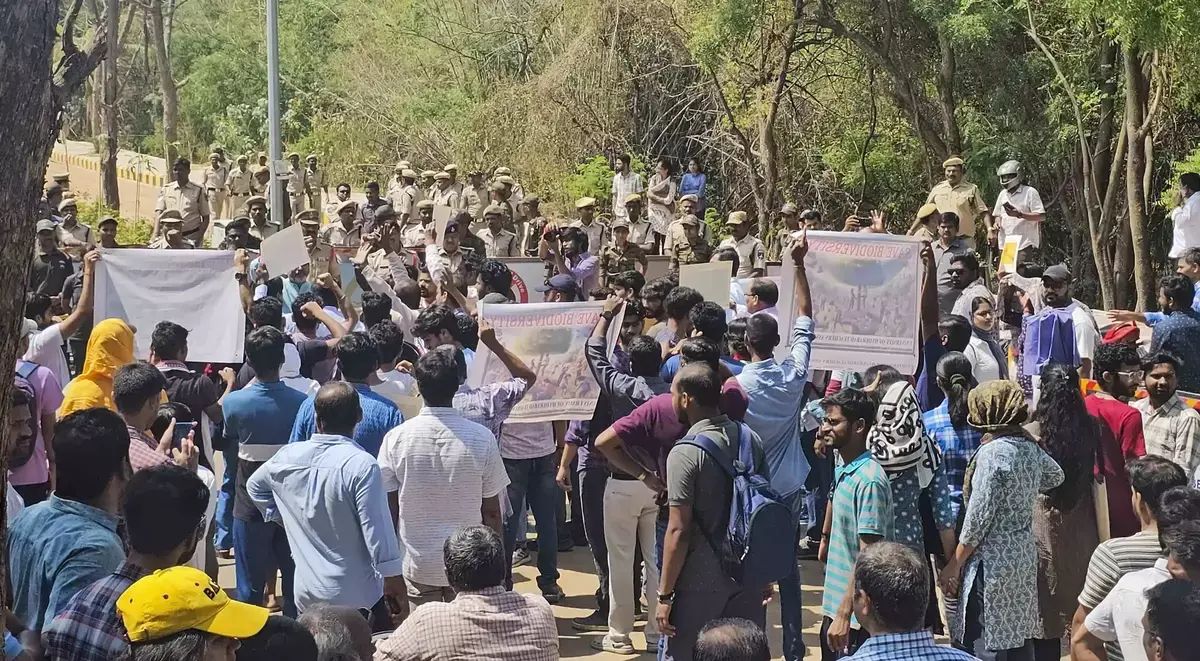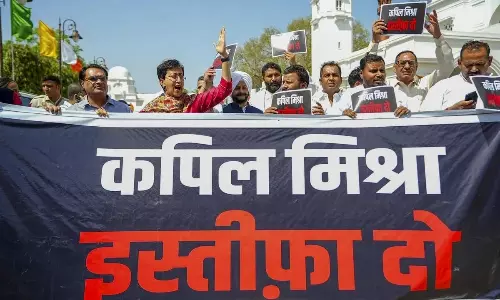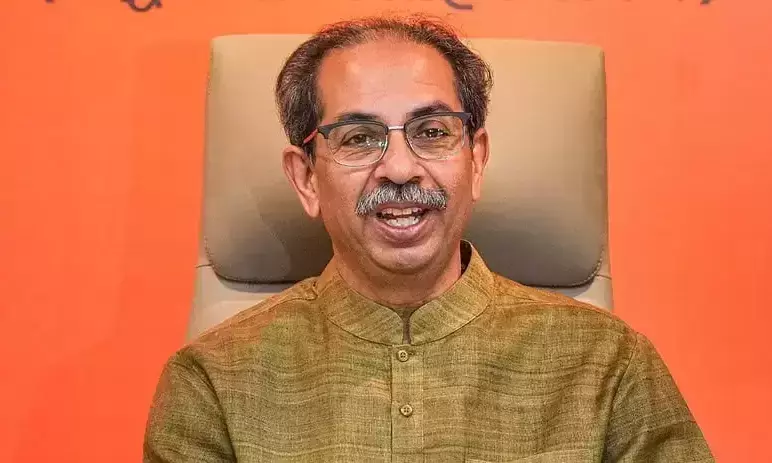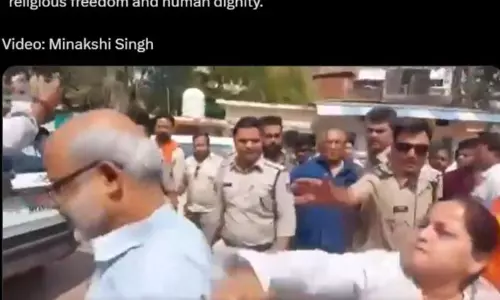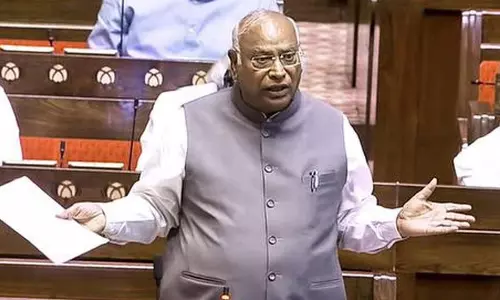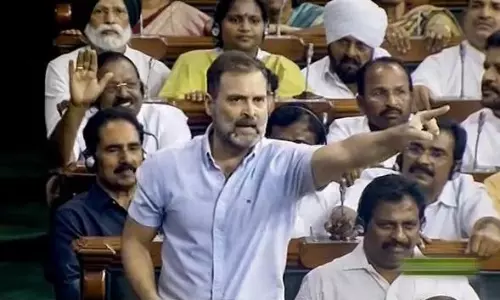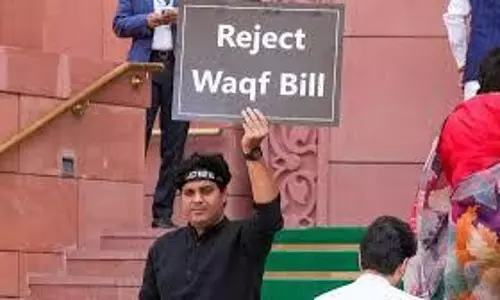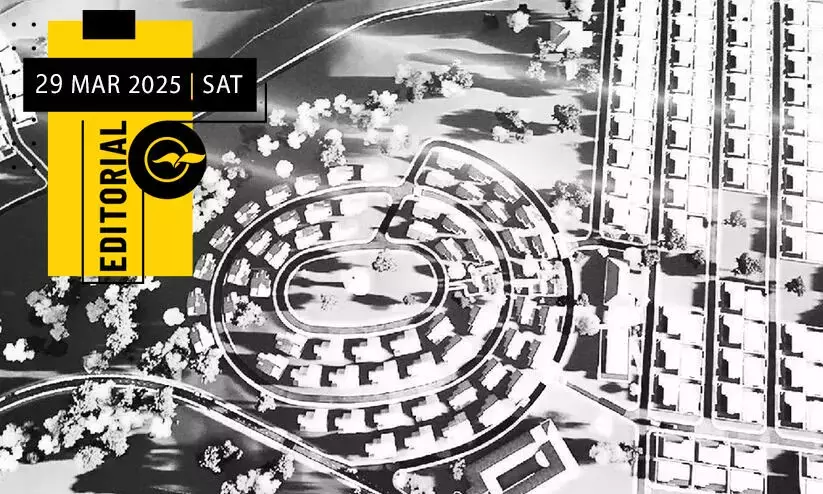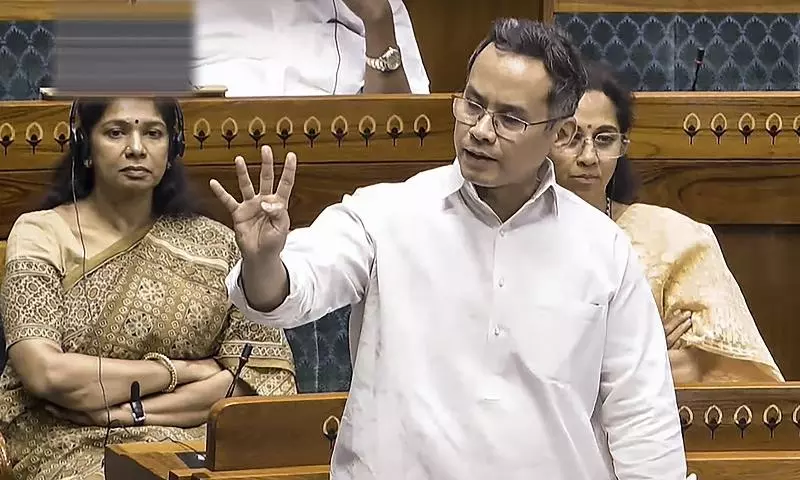
Cong's Gogoi rips into BJP govt’s ‘4D assault’ on minorities, calls Waqf Bill a ‘bulldozing’ of rights
text_fieldsCongress leader Gaurav Gogoi on Wednesday launched a strong attack on the Centre over the Waqf (Amendment) Bill, asserting that the proposed changes were discriminatory and regressive, while accusing the BJP-led government of attempting to undermine minority rights through what he termed a "4D assault on the Constitution."
Initiating the Opposition's debate on the Bill in Parliament, the Deputy Leader of Congress in the Lok Sabha criticised the government's approach, alleging that the Joint Committee of Parliament failed to conduct a clause-by-clause discussion on the Bill, which he claimed was rushed through without adequate deliberation.
Gogoi countered Union Minority Affairs Minister Kiren Rijiju’s allegations against the previous UPA government’s decision to denotify 123 prime properties in Delhi and transfer them to the Waqf Board.
He termed Rijiju’s claims as completely false and demanded authentication, insisting that the BJP was distorting facts to justify its own controversial amendments. He also accused the government of trying to weaken Waqf institutions under the pretext of reform and cited the Ayodhya verdict as an instance where the government had allegedly removed Waqf users to undermine judicial rulings.
The Congress leader also highlighted the issue of women’s representation in Waqf Boards, arguing that the 1995 Waqf Act permitted the inclusion of more than two women, whereas the proposed amendment restricted it to a maximum of two. He stated that this was an attempt to curtail gender representation rather than promoting inclusivity, and he condemned the government for rolling back progressive provisions while claiming to support women’s empowerment.
Gogoi further raised concerns over the alleged lack of stakeholder consultation, asserting that despite four meetings being held by the Ministry of Minority Affairs, key concerns regarding the Bill were ignored. He pointed to a controversial provision requiring individuals to prove their adherence to Islam to access Waqf properties, questioning whether such religious certification requirements would eventually extend to other communities as well.
He described this as a clear attempt to create unnecessary hurdles for the Muslim community and accused the government of fostering an atmosphere of fear and exclusion.
He also accused the government of using the Bill as a tool to encroach upon Muslim properties, arguing that the BJP was systematically targeting Waqf lands under the guise of legal amendments. He opposed the government’s assertion that the High Court should have no role in Waqf disputes, pointing out that the parent Act explicitly allowed the judiciary to take suo-motu cognisance of cases.
He criticised the government’s handling of religious practices, citing restrictions imposed on Muslims praying on public roads during Eid, and asserted that such measures reflected the ruling party’s anti-minority stance.
Regarding procedural lapses in the Joint Committee of Parliament, Gogoi and other Opposition members claimed that the panel, chaired by BJP MP Jagdambika Pal, did not follow due process.
He reiterated that a clause-by-clause discussion, which is standard practice in parliamentary committees, was not conducted and that amendments were pushed through without justification.
Opposition members had earlier alleged that on January 27, shortly before the panel submitted its report, 14 amendments were put to a vote without thorough discussion. Shiv Sena (UBT) MP Arvind Sawant had argued that amendments proposed by the Opposition were merely voted on without being debated, while Pal defended the committee’s approach, insisting that a majority vote determined the amendments.
Further compounding the Opposition’s grievances was the lack of sufficient time to review the committee’s findings. MPs were reportedly given a draft of the Bill in the evening and asked to submit their comments by 10 am the following day, leaving them little scope to scrutinise the provisions in detail.
On February 13, Opposition MPs also alleged that portions of their dissent notes had been redacted without their knowledge, forcing the government to issue a corrigendum to restore some of the omitted sections.
The Congress, on March 23, issued a statement denouncing the Bill as "another attack on the Constitution" and claimed that the 428-page report had been "bulldozed" through the Joint Committee of Parliament without undergoing proper examination.
Gogoi, in his concluding remarks, accused the government of deliberately bypassing democratic procedures to pass a law that, in his view, was designed to target minorities under the pretext of legal reforms. He reaffirmed the Congress party’s opposition to the Bill and vowed to challenge its provisions both in Parliament and beyond, calling upon all Opposition parties to resist what he described as the BJP’s systematic erosion of constitutional values.




